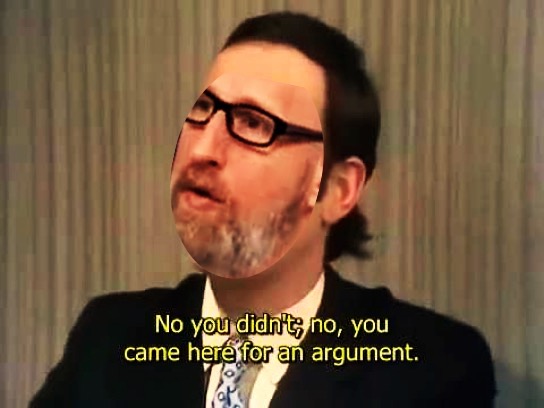Democracy and despotism in a digital age.
Where Are our Leaders?

Elite universities have failed to produce elites.
As part of our ongoing efforts to diagnose the failures of higher education, we present three pieces by college students writing “from the ground,” giving firsthand accounts of life in the 21st-century academy.—Eds.
The higher education system, composed of “elite” institutions, has failed the nation.
It has failed to produce men and women who are statesmen, creators, and leaders. It has instead produced bureaucrats, financiers, and the engineers of Silicon Valley.
Top universities include Ivy League institutions such as Harvard, Yale, and Princeton or “public ivies” like UVA, Michigan, and UC-Berkeley. Students, parents, and high school administrators spend hundreds of hours and thousands of dollars to get into these institutions. Why?
Not because of the promise that they will receive an education (one cannot call four years disconnected from reality an education) but because it will launch them on the way to financial and professional success.
This is a tragedy for the nation, a disaster for these institutions, and a spur to reform.
The nation is in desperate need of elites. Throughout history it has been the elites of the regime—whether Roman, English, or American—who have shaped virtues, goals, and laws through their influence and example. The current system has failed to produce them.
Instead, it has given us students who work aggressively to be admitted and once admitted are rarely kicked out. Immense resources are devoted to helping these students: if they are struggling there is a program, tutor, or assisted deadline to aid them. Not only are the standards and expectations for those at elite institutions different from state schools (deadlines, deadlines, deadlines) but so is the education. These schools are supposed to shape the minds and mold the character of elites to be leaders, producers, and virtuous citizens who will benefit society as well as themselves.
The nation has not seen the benefits of elite institutions in the form of statesmen, leaders, and philosophers. Instead, we have created a ruling class where admission into the elite, powerful, and wealthy circles of our nation is secured with one’s college acceptance. It is well-known and expected that these students will go on to become our doctors, politicians, scientists, businessmen, and bankers. They are not taught to think—to understand how man has answered the perennial questions that have confronted him—or equipped with a firm grasp of history, literature, or reality.
Instead they are trained to mouth the pieties of diversity and tolerance demanded of them, and to never rock the boat or engage in controversial behavior (support the Second Amendment, oppose homosexuality, call abortion the murder of an unborn and innocent child, etc.). This reflects the failure to understand a liberal arts education and its importance for free citizens, virtuous men, and prudential statesmanship.
A Proper Education for the Elite
The purpose of an elite education is to create habits of mind and character in free men so that they can lead and sustain a regime of liberty and limited government. It is not merely career-oriented.
The university is not merely a place to acquire technical skills and receive vocational training. This would be a technical education. Technical education is useful and necessary; it allows one to accomplish a task well and get paid for it. But these skills are limited. The purpose of higher education and of a liberal arts education specifically is higher still.
Technical education is in service of something—piloting a boat, performing surgery, or filling legal forms. A true liberal education is an education for free men with free minds and the ability and leisure to ask fundamental questions. What is the purpose of life? How should the good, the true, and the beautiful be pursued? Is there a transcendent standard for all men’s actions in all times?
A liberal arts education is for the free, not merely in the sense of men with the leisure and time to engage in it, but also in the sense of men who are not enslaved to their passions. The relationship between free men, free regimes, and free minds is therefore very close.
A Liberal Education is Essential in Politics
Politics and a liberal education go hand-in-hand.
This is because politics is the art that informs and orders all other arts. While this science is in fact practical (when to go to war, how to structure the laws, defining victory) it is also intensely theoretical because it requires study and knowledge of human nature.
The American regime requires virtuous citizens to survive and flourish. To accomplish this, the Founders established a free society with limited government and equal rights under the equal protection of the laws. To preserve this great system of government requires liberally educated men. It requires liberally educated elites: an aristocracy of the best, the virtuous, and the wise.
Thomas Jefferson intended the University of Virginia to fulfill such a role. In the 1818 Report of the Commissioners of the University of Virginia the purpose of such an education was identified:
To form the statesmen, legislators and judges, on whom public prosperity and individual happiness are so much to depend; To expound the principles and structure of government,…and a sound spirit of legislation, which…shall leave us free to do whatever does not violate the equal rights of another; to harmonize and promote the interests of agriculture, manufactures and commerce…; to develop the reasoning faculties of our youth, enlarge their minds, cultivate their morals, and instill into them the precepts of virtue and order; to enlighten them with mathematical and physical sciences, which advance the arts and administer to the health, the subsistence and comforts of human life; and, generally, to form them to habits of reflection and correct action, rendering them examples of virtue to others and of happiness within themselves. These are the objects of that higher grade of education, the benefits and blessings of which the Legislature now propose to provide for the good and ornament of their country….
The Founders were men of mind and character, prudence and action. They hoped higher education would assist the perpetuation of liberty and the formation of statesmen, creators, and philosophers competent to lead the nation. Instead, higher education in America today exacerbates class and ideological divides.
The United States today is divided between two classes: the ruling class and the rest. The ruling class dominates government, academia, Hollywood, the media, and much else. This class is by and large trained by “elite” colleges and universities.
Although these institutions once produced men of the caliber of Alexander Hamilton, James Madison, and Theodore Roosevelt, they have now given us the Clintons—a family that has gamed the system for gain rather than rising by merit and serving the good of the nation. This ruling class enjoys immense wealth, power, and privilege. It looks down upon the rest of the country as racist, ignorant, gun-loving, and bigoted religious fundamentalists. Yet this same elite has failed to produce statesmen, combat the opioid crisis, or foresee the 2008 economic recession. Instead, it has mired the nation in combat in the Middle East.
Nihilism, relativism, historicism, and the diversity mantra have poisoned American education. If nihilism is true then there is no point to engaging in politics because it is meaningless, meaningless, utterly meaningless. It reflects the Melian dialogues in Book V of Thucydides’ History of the Peloponnesian War, wherein Athens asserts that the strong do what they will and the weak suffer what they must. If relativism is true then there is no standard of right and wrong. Engaging in cannibalism or refusing to eat grandma become merely individual preferences.
This line of thought makes it difficult, if not impossible, to draw the line between good and evil in domestic and foreign policy. If the historicist is right then men are trapped in the age in which they were born. They cannot have a true understanding of what is true and good and noble, only what their society and time will allow them. According to this philosophy, the same is true today. Who knows what modern virtue will be viewed by our descendants as vice, cruelty, or inanity?
Those who engage in the multiculturalist agenda fail to recognize that if the regime is to survive, citzens need to agree on the ends of government and justice (we can disagree about the means). Otherwise the United States risks becoming balkanized and tribal—whites against blacks, rich against poor, the somewheres against the anywheres. These philosophies are widely indoctrinated into the youth and leaders of America. They fail to recognize fundamental truths of human nature.
Man is a moral being with free will and reason. He is not captive to and merely reflective of material and historical causes. Great men may deliberate about the common good and practice the virtue of prudence. This means acting in accordance with eternal principles, while recognizing the present reality within which individuals, leaders, and nations must act.
While science and technology have advanced, the virtue, prudence, and statesmanship of men has not. The world has only gotten smaller since the Second World War—communications are faster, travel is easier, and the we are more connected than ever before. These advances have also greatly increased the possibility and ease of war, chaos, and destruction. Therefore, the education of a true elite is all the more important.
The failure of elite universities to produce individuals who understand Western heritage, comprehend natural law and natural rights, and are competent in their fields, is a crisis. These are the men and women who set the tone and direction for the country, and they are leading us off a cliff.
One can only hope that out of the sheep at Harvard and Yale there might arise a statesman. Yet we cannot count on this.
Christians, conservatives, and individuals who recognize the necessity of a true elite, consistent with the purpose of the Republic, need to start considering ways of reform.
The American Mind presents a range of perspectives. Views are writers’ own and do not necessarily represent those of The Claremont Institute.
The American Mind is a publication of the Claremont Institute, a non-profit 501(c)(3) organization, dedicated to restoring the principles of the American Founding to their rightful, preeminent authority in our national life. Interested in supporting our work? Gifts to the Claremont Institute are tax-deductible.






